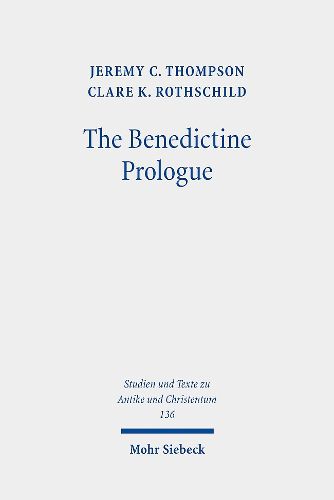Readings Newsletter
Become a Readings Member to make your shopping experience even easier.
Sign in or sign up for free!
You’re not far away from qualifying for FREE standard shipping within Australia
You’ve qualified for FREE standard shipping within Australia
The cart is loading…






For centuries, biblical prologues introduced readers to the themes and problems of the Latin Bible. Paul's profile has undoubtedly been shaped by this genre: Paul the new Moses, Paul the theologian, Paul the arbitrator between Jews and gentiles. Despite fine critical editions, the texts and historical situations of these prologues still lack scholarly attention. The present monograph examines one such introduction known as the Benedictine Prologue, acknowledged for its relationship to the Muratorian Fragment but excluded from all indices of biblical paratexts. Prompted by a new manuscript discovery, Jeremy C. Thompson and Clare K. Rothschild treat the prologue in its own right with a new edition and commentary covering all known sources and analogues. Ultimately, they propose to ground this rare text in the book practices, theological polemics, and intellectual exchange between Greek and Latin writers of the early fifth century and beyond.
$9.00 standard shipping within Australia
FREE standard shipping within Australia for orders over $100.00
Express & International shipping calculated at checkout
Stock availability can be subject to change without notice. We recommend calling the shop or contacting our online team to check availability of low stock items. Please see our Shopping Online page for more details.
For centuries, biblical prologues introduced readers to the themes and problems of the Latin Bible. Paul's profile has undoubtedly been shaped by this genre: Paul the new Moses, Paul the theologian, Paul the arbitrator between Jews and gentiles. Despite fine critical editions, the texts and historical situations of these prologues still lack scholarly attention. The present monograph examines one such introduction known as the Benedictine Prologue, acknowledged for its relationship to the Muratorian Fragment but excluded from all indices of biblical paratexts. Prompted by a new manuscript discovery, Jeremy C. Thompson and Clare K. Rothschild treat the prologue in its own right with a new edition and commentary covering all known sources and analogues. Ultimately, they propose to ground this rare text in the book practices, theological polemics, and intellectual exchange between Greek and Latin writers of the early fifth century and beyond.